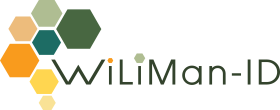Food, Global Health Reading time 2 min
European project to fight 5 infectious animal diseases
Published on 05 October 2023

The WiLiMan-ID project for “Wildlife, Livestock, human and Infectious Disease” aims towards improving the health and resilience of animal production systems in Europe. For this purpose, the ambition of WiLiMan-ID is to identify key factors involved in host-pathogen interactions for five infectious diseases that circulate between livestock (poultry, pigs, farmed deer or horses), wildlife (birds, wild pigs or wild deer ) and humans. Classified as high priority by the European Union, several of these diseases, such as African swine fever and African horse sickness, cause serious economic losses to agricultural systems and three, avian influenza, West Nile fever and chronic wasting diseases, pose a threat to human health.
The main objectives of WiLiMan-ID are (1) to identify key factors in the emergence of these diseases and their dissemination in changing environments, by integrating data at different scales (pathogens > host > community of hosts > territory) and (2) to provide farmers, health services and policy makers with innovative strategies and methods for the prevention, surveillance and control of these diseases.
Using an integrated approach, the project aims to:
- improve understanding of the impacts of global changes on the ecology of pathogens and animal diseases - in order to predict them and possibly define appropriate countermeasures;
- improve risk-based surveillance by providing a better understanding of the emergence and spread of infectious animal diseases;
- improve the prevention and control of infectious diseases in animals in order to limit their potential impact on human populations.
The project in a few figures:

- Financing: €6,086 million
- Duration: 5 years
- Partners: 14
- Countries: 11
Partners:
INRAE, French National Research Institute for Agriculture, Food and Environment (FR) ; ENVT - Ecole Nationale Vétérinaire de Toulouse (FR) ; IAV Hassan II - Institut Agronomique et Vétérinaire Hassan II (MA) ; NVI Oslo – Veterinaerinstituttet (NO) ; IZS Teramo - Istituto Zooprofilattico Sperimentale dell'Abruzzo e del Molise G Caporale (IT) ; Sciensano – Sciensano (BE) ; UCPH - Kobenhavns Universitet (DK) ; SVA - Statens Veterinaermedicinska Anstalt (SE) ; BFC - Biofaction KG (AU) ; FLI - Friedrich Loeffler Institut - Bundesforschungsinstitut fuer Tiergesundheit (DE) ; ANSES - Agence Nationale de la Sécurité Sanitaire de l'Alimentation de l'Environnement et du Travail (FR) ; INRAE Transfert (FR) ; LCV - Laboratorio Central de Veterinaria / Ministerio de Agricultura, Pesca y Alimentación (ES) ; WU-DAS - Wageningen University, Department of Animal SciencesUR (NL)
INRAE laboratories involved:
Biology, Epidemiology and Risk Analysis in Animal Health (BioEpar), Infectious Diseases and Public Health (ISP), Molecular Virology and Immunology (VIM), Host-Pathogen Interactions (IHAP).
This project has received funding from the European Union’s Horizon Europe Research and Innovation Actions programme under grant agreement N°101083833.
